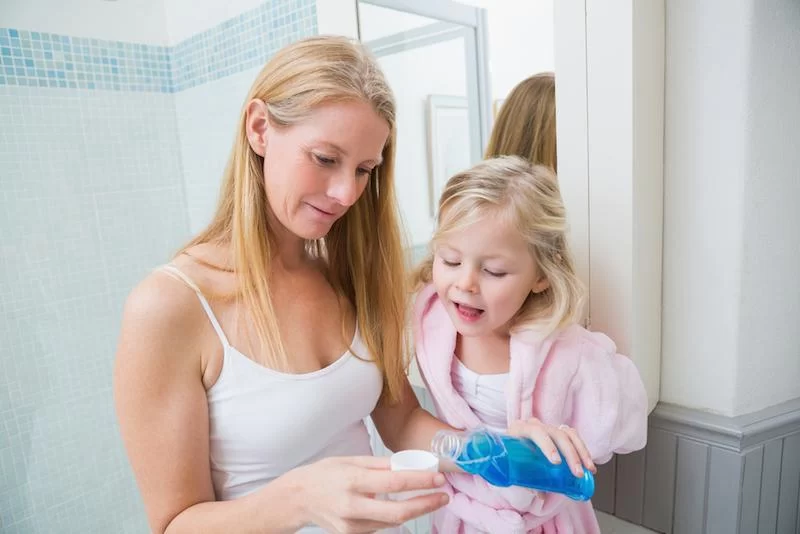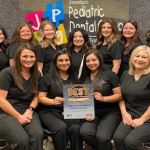
Helping My Kids Build Healthy Habits: Our Journey with Mouthwash
I still remember the first time my daughter asked if she could use mouthwash like I did. She was five, standing on her tiptoes in front of the bathroom mirror, watching me swirl blue liquid around like it was some magical potion. I paused, unsure whether she was old enough. That simple question led me down a rabbit hole of research, dentist visits, and trial and error—all to figure out when kids should really start using mouthwash safely.
1. The Right Age Isn’t Always a Number
Every child is different, and while many dental experts suggest kids can start using mouthwash around the age of six, it’s not just about age. The real question is: can your child swish and spit without swallowing?
In our house, I tested this by giving my kids a cup of water and watching them mimic rinsing and spitting. My oldest managed it easily at six. My younger son? Not until he was nearly eight. It turns out coordination and understanding are more important than age on a calendar.
2. Why Mouthwash Can Help Kids’ Oral Health
At first, I wasn’t even sure if kids really needed mouthwash. They were brushing twice a day, flossing (most of the time), and seeing the dentist regularly. But then my daughter started getting those little white spots on her back molars—early signs of enamel weakening.
That’s when our pediatric dentist recommended adding a fluoride mouthwash, especially since our town’s water wasn’t fluoridated. She explained that mouthwash helps:
- Strengthen enamel with fluoride
- Reduce plaque buildup between brushings
- Fight bacteria that cause gingivitis and bad breath
It wasn’t a cure-all, but it was another layer of protection—especially during the years when brushing wasn’t always thorough (let’s be honest, most kids are in a rush to get back to cartoons).
3. Choosing the Right Mouthwash for Kids
This part took more effort than I expected. The store shelves were packed with flashy bottles featuring cartoon characters, bold flavors, and big promises. But here’s what I learned from both my experience and talking to professionals:
3.1 Alcohol-Free is Non-Negotiable
Always choose alcohol-free formulas for children. Alcohol can be too harsh, even for teens, and carries risks if swallowed. I made the mistake of accidentally buying a minty version that wasn’t labeled well. One rinse and my daughter said it "burned like lava." We tossed it immediately.
3.2 Look for Fluoride—But Know When It’s Needed
If your child is already getting fluoride from toothpaste and drinking water, ask your dentist whether additional fluoride from mouthwash is necessary. Too much fluoride can lead to dental fluorosis. In our case, since we used a non-fluoridated water source, the extra boost helped.
3.3 Flavor Matters More Than You Think
I learned this the hard way. My son refused to use anything “too spicy.” We eventually settled on a mild bubblegum flavor that made him feel like it was a treat, not a chore. Don't underestimate the power of flavor in building habits.
4. Creating a Safe and Positive Routine
When we first introduced mouthwash into the bedtime routine, I treated it like a big-kid privilege. I even created a mini chart with stars to make it feel like an accomplishment. This not only motivated my kids but also helped me ensure they were rinsing properly without swallowing.
We started small—only using mouthwash once a day at night, when we could supervise. I stood with them, counted to 30 out loud, and we’d all spit together like some quirky family ritual. It became a bonding moment instead of just another task.
5. Mistakes and What I Learned Along the Way
Not everything went smoothly. One night, my youngest decided the mouthwash smelled too good and drank a sip. Thankfully, it was a tiny amount of fluoride-free rinse, and we called poison control to be safe. That was a turning point—we began keeping all mouthwash out of reach and only allowing supervised use.
Another hiccup was assuming once they started, they’d do it forever. Nope. Like anything, habits fade if not reinforced. We added fun timers, colorful cups, and even a song to keep it engaging.
6. Talking to the Experts Really Helped
Our pediatric dentist was an incredible resource. She not only guided us on when to start but gave me tips like:
- Using mouthwash after brushing, not instead of
- Choosing products with the ADA Seal of Acceptance
- Rotating flavors every few months to keep it interesting
She also reassured me that skipping mouthwash occasionally wasn’t the end of the world—as long as brushing and flossing were consistent. That took some pressure off and helped me avoid turning oral care into a battleground.
7. What I’d Tell Other Parents
If you’re unsure whether your child is ready for mouthwash, start with a conversation—both with your kid and your dentist. Test their ability to swish and spit with water first. Watch for curiosity and interest. And most importantly, make it a positive experience, not a punishment or lecture.
Over time, mouthwash became a normal part of our nightly routine. Now, my kids remind each other if someone forgets. That’s a win in my book.
If you’re looking for child-friendly mouthwash options or need help finding a dental professional who can guide you, platforms like Dentistry Toothtruth can help you compare clinics, services, and recommendations tailored to families like ours. Trust me—there’s nothing more reassuring than having expert advice when it comes to your child’s health.
In the end, helping my kids start using mouthwash wasn’t just about fresher breath—it was about teaching responsibility, building confidence, and giving them tools they’ll carry into adulthood.







 Sangchi Tang, DDS5.0 (1 review)
Sangchi Tang, DDS5.0 (1 review) Jonesboro Pediatric Dental Group4.0 (77 review)
Jonesboro Pediatric Dental Group4.0 (77 review) Plymouth Greene Dental4.0 (263 review)
Plymouth Greene Dental4.0 (263 review) Children's Dental Associates4.0 (247 review)
Children's Dental Associates4.0 (247 review) Tigard City Dental5.0 (136 review)
Tigard City Dental5.0 (136 review) Beautiful Smilez Dentistry5.0 (14 review)
Beautiful Smilez Dentistry5.0 (14 review) The Importance of Oral Health Education During Pregnancy for a Healthy Pregnancy
The Importance of Oral Health Education During Pregnancy for a Healthy Pregnancy Best Tips for Brushing Your Teeth Properly for Healthy Gums: Essential Techniques for Oral Health
Best Tips for Brushing Your Teeth Properly for Healthy Gums: Essential Techniques for Oral Health Why Skipping Dental Checkups Can Lead to Bigger Oral Health Problems
Why Skipping Dental Checkups Can Lead to Bigger Oral Health Problems Advantages of Porcelain Dental Restorations
Advantages of Porcelain Dental Restorations How Can Diabetes Cause Tooth and Gum Problems? Preventing and Managing Oral Health Issues
How Can Diabetes Cause Tooth and Gum Problems? Preventing and Managing Oral Health Issues Healthy Habits for Promoting Good Oral Health and Hygiene: Tips for a Healthy Smile
Healthy Habits for Promoting Good Oral Health and Hygiene: Tips for a Healthy Smile